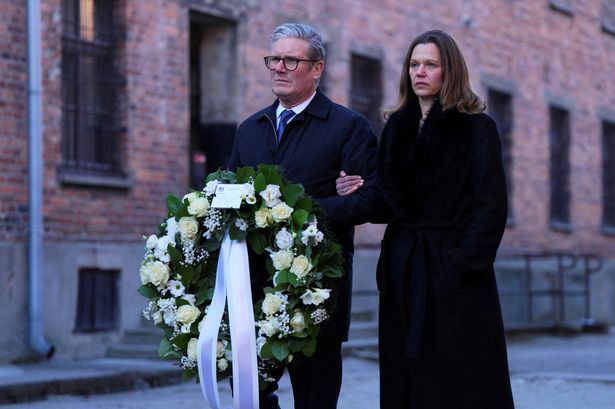Keir Starmer’s visit to Auschwitz-Birkenau, the infamous Nazi death camp, left an indelible mark on the Labour leader, profoundly shaping his understanding of the Holocaust’s sheer horror and reinforcing his unwavering commitment to combating anti-Semitism. He described the experience as beyond comprehension, a confrontation with the darkest chapter of human history where the systematic extermination of millions unfolded. The sheer scale of the atrocity, the meticulous planning and industrial efficiency employed in the machinery of death, and the palpable remnants of suffering left an enduring impact, strengthening his resolve to fight against the insidious ideology that fueled this genocide. His visit served as a stark reminder of the fragility of civilization and the ever-present threat posed by hatred and intolerance. It underscored the urgent need for vigilance and proactive measures to prevent such atrocities from ever happening again.
The visit to Auschwitz-Birkenau was not merely an intellectual exercise or a symbolic gesture for Starmer. It was a visceral, emotional encounter with the tangible remnants of unimaginable cruelty. Walking through the preserved barracks, gas chambers, and crematoria, he witnessed firsthand the grim reality of the Nazi regime’s meticulously orchestrated campaign of extermination. The piles of shoes, eyeglasses, and personal belongings left behind by the victims served as poignant reminders of the individuals whose lives were brutally extinguished. The sheer volume of these artifacts, representing the vast number of lives lost, drove home the scale of the horror in a way that no historical account could ever achieve. This direct confrontation with the evidence of genocide deeply affected Starmer, reinforcing his conviction that the fight against anti-Semitism is not just a political issue, but a moral imperative.
Starmer’s experience at Auschwitz-Birkenau solidified his belief that remembrance is not merely a passive act of commemoration, but an active commitment to learning from the past and applying its lessons to the present. The Holocaust, he emphasized, was not an isolated incident but the culmination of centuries of anti-Semitism, a poisonous ideology that continues to plague societies worldwide. The visit served as a stark reminder of the dangers of allowing prejudice and discrimination to fester unchecked, highlighting the importance of education and awareness in combating the insidious spread of hate. It instilled in him a renewed sense of responsibility to actively challenge all forms of intolerance and to ensure that the lessons of the Holocaust are never forgotten.
Furthermore, Starmer recognized that confronting anti-Semitism requires not only condemnation but also concrete action. He pledged to strengthen efforts within the Labour Party to root out any manifestations of anti-Jewish sentiment, emphasizing the need for zero tolerance within the party ranks. The visit to Auschwitz-Birkenau reinforced his belief that fighting anti-Semitism is not solely a Jewish issue but a fundamental issue of human rights and social justice. He acknowledged that combating this insidious form of prejudice requires a collective effort, calling for broader societal engagement and collaboration with Jewish communities to effectively address the root causes of anti-Semitism and foster a culture of respect and understanding.
Beyond the immediate context of combating anti-Semitism, Starmer’s experience at Auschwitz-Birkenau underscored the broader importance of fighting all forms of prejudice and discrimination. The Holocaust, he emphasized, stands as a chilling testament to the devastating consequences of unchecked hatred and the urgent need to safeguard human rights for all. He called for a renewed commitment to building a more inclusive and tolerant society, one where diversity is celebrated and where all individuals are treated with dignity and respect. His visit served as a powerful reminder that the fight against prejudice is an ongoing struggle that requires vigilance, empathy, and a unwavering commitment to justice.
Starmer’s visit to Auschwitz-Birkenau was not just a personal journey; it was a declaration of his commitment to combating hatred and promoting tolerance. His reflections on the experience highlight the profound impact of confronting the horrors of the Holocaust firsthand and serve as a call to action for individuals and societies alike. The memory of the victims, he emphasized, must not fade. It must serve as a constant reminder of the dangers of indifference and the urgent need to confront all forms of prejudice, ensuring that the atrocities of the past are never repeated. His words and actions following the visit underscore his dedication to ensuring that the lessons of the Holocaust remain etched in our collective consciousness, shaping our present and future for the better.














